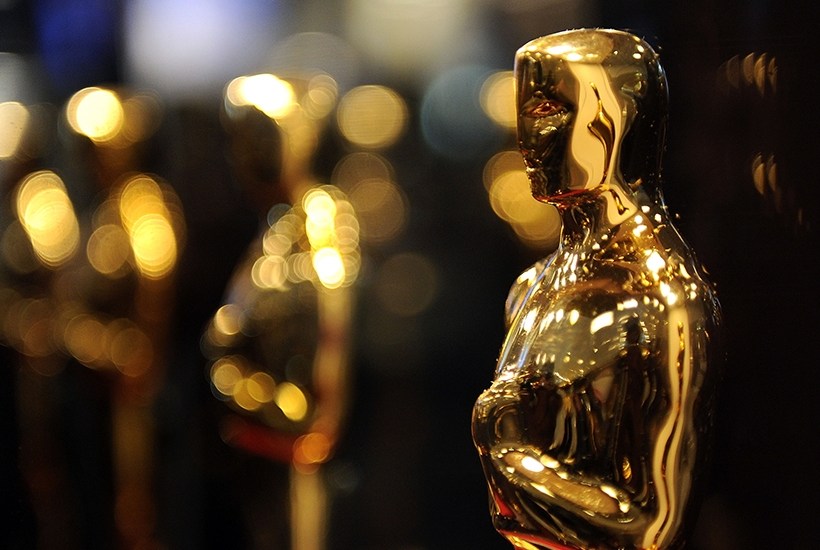I moved to this country from the USA 30 years ago and this year I’ve finally understood why: it was to spare myself the more self-defeating elements of America’s identity politics. Last week, the Oscars announced diversity guidelines, at least some of which films will have to fulfil to be considered for an Academy Award, such as that the film must ‘centre on women, LGBTQ people, a racial or ethnic group or the disabled’. Yet nowhere in these guidelines is there acknowledgement of one of the biggest predictors of quality of life in the US and, indeed, everywhere: social class. Going by the Oscars’ new rules, the 1988 Eddie Murphy comedy about a phenomenally wealthy African prince, Coming to America, would get more points than, say, Ken Loach’s I, Daniel Blake. Having said that, I’d rather watch Coming to America a million times than I, Daniel Blake ever again, so perhaps the Oscars are cleverer than I appreciated.
A colleague texted, ‘So is it true?’ and told me some gossip about the PM so scurrilous I can’t repeat it, but so scandalous I had no choice but to believe it at once. ‘WHAT?!’ I texted back. ‘You haven’t heard? Everyone knows. What kind of journalist are you?’ she replied. This is the problem with being a journalist who loves gossip (a tautology, surely): every time someone tells you something, you have to pretend you already know, which takes half the fun out for me.
‘When do you think you were radicalised?’ my friend asked when we met for falafels on Hampstead Heath (gaze upon the north London elite, dear readers). It was a fair question: I’d spent the past ten minutes ranting about modern gender ideology, and how if we all accept that gender and sex are different, as gender ideology very specifically argues, then why does changing gender now mean a person has actually changed sex, and that trans women athletes should compete against female ones? And if gender is something spiritual and innate (part of one’s ‘soul’, according to failed Lib Dem leadership candidate Layla Moran), then why has Mermaids, an organisation ‘helping gender-diverse kids’, given lectures to the police where they define gender as something that ranges between the famously soulful entities of a Barbie doll and a GI Joe? And — OK, I’ll give it a rest.
Have I been radicalised? ‘I think I’ve long been pretty au fait with the idea that gender expression and biological sex are not necessarily linked. Who knew, 40 years after Boy George, 100 years after Radclyffe Hall, that this was a controversial idea?’ I harrumphed to my friend. But in truth, I have been radicalised, just not about gender. Like a lot of tragically heteronormative women, I am an innate people-pleaser, and for a long time my greatest fear, aside from being forced to go camping, was angering people. But then the latest version of gender theory took off and it turned out I had a greater fear: denying the bleeding obvious. So I started saying, ‘Hang on, are we really saying that being a woman is just a psychological concept?’ and I was shouted at by strangers online and lost some friends (not, fortunately, the one on Hampstead Heath). But here’s the weird part: I don’t care. I obviously don’t want to hurt anyone’s feelings, but that doesn’t mean the rest of us have to say, ‘Yes, male-born prisoners sharing cells with female ones — can’t see any problems there!’ So now I’m a woman who displeases people, which gender theorists should celebrate as overturning gender norms. And yet, strangely, they do not. Turns out I don’t understand what being a woman means after all.
Lunch done, I began the latest round of book promotion, which is to say, I returned home to fire up Zoom again. Here’s a Jewish joke for you: a woman spends 20 years on a book about her Jewish relatives. At last, she finishes it. ‘God will bless me for being a good Jew,’ she thinks. Instead, God sends down a global plague. So rather than doing a victory lap around literary festivals, she must now spend her days talking to her laptop. How about that for some Old Testament punishment? Honestly, I’m starting to suspect it was me rather than the poor pangolin that caused Covid. Like the Nazis at the end of Raiders of the Lost Ark, I uncovered an ancient tale that should have stayed buried.
The thing is, I find talking to people on Zoom so deflating, and talking about my book on Zoom even more so. Normally cake remedies the problem, but today I needed something special. So I texted a journalist friend: ‘What do you think about this latest gossip about Boris? What do you mean you haven’t heard? Everyone’s talking about it!’
Got something to add? Join the discussion and comment below.
Get 10 issues for just $10
Subscribe to The Spectator Australia today for the next 10 magazine issues, plus full online access, for just $10.
Hadley Freeman is a Guardian staff writer.
You might disagree with half of it, but you’ll enjoy reading all of it. Try your first month for free, then just $2 a week for the remainder of your first year.














Comments
Don't miss out
Join the conversation with other Spectator Australia readers. Subscribe to leave a comment.
SUBSCRIBEAlready a subscriber? Log in